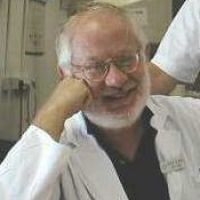Promises Kept 6
The year 1935 marked the depths of the world depression. When the Senior Class of the Marquette University School of Medicine in Milwaukee graduated, there were few opportunities for starting a professional career. The City Health Department had one opening; they were seeking a full-time physician to be a Public Health officer. The job went to Edward R. Krumbiegel, who had finished number one in his class.
The year 1965 marked the height of the war in Vietnam. I completed my internship at New York University – Bellevue Hospitals in June of 1966, when all newly-trained physicians were being drafted out of internship and being sent to Southeast Asia. Fortunately, I had during my senior year in Medical School established a relationship with the head of the U.S. Public Health Service Chronic Disease Center, whose major interest was in preventing chronic illnesses in the elderly. His drafting me to serve in the U.S. Public Health Service enabled me to serve my country in this time of war, in the Milwaukee City Department of Health. It was there that I met Edward R. Krumbiegel.
In 1966, Krumbiegel, as he was universally called, was one of the most straightforward, "call it as you see it", honest public officials I ever met. He was smart, talented, and ran one of the most acclaimed Municipal Health Departments in the U.S. When I was assigned to his department, it was at a peak in Black activism, when the Black community was outspoken and demanding. One of their concerns was the prevalence of rats in their neighborhoods and they were demanding that the Health Department invest resources to combat the problem. Krumbiegel, in his calm, understated way, explained to the Black activists that he would initiate an active program in their neighborhoods to teach the residents how to wrap and dispose of garbage. His comments triggered outrage. They wanted the city to get rid of the rats! He patiently explained that if there was nothing for them to eat, they would disappear, while spreading poison would wreak havoc in the neighborhood. Eventually they acquiesced and the problem slowly disappeared.
In the 1960s, computer technology was primitive. Programs were punched into cards and then fed into a card reader. Algorithms were primitive, yet Krumbiegel was interested in applying this new modality to improving the health status of Milwaukeeans. He had applied for a grant to the Chronic Disease Branch of the U.S. Public Health Service to create a Screening Program among the adult population to detect individuals at high risk for chronic disease. The concept was to use computers to track the population and assure that programs of active intervention were being followed. The U.S. Public Health Service approved the grant and sent me to supervise the project. That two years in Milwaukee applying computer technology to medical issues has remained a passion of mine until today!
Now, in addition to eliminating rats, programming computers, and managing public health programs, I acquired other experiences as a consequence of my association with Ed Krumbiegel.
He was smart, intellectual and had supported himself in university and medical school by playing jazz piano.
In addition to Milwaukee, the U.S. Public Health Service had funded a program similar to the one we were doing in New Orleans. They requested that we consult with each other on a regular basis and this necessitated several trips with Krumbiegel and myself spending several days in New Orleans. Krumbiegel loved it. We would have meetings for 8 hours a day, discussing the potential of computers to impact public health; then we would bar hop till 2 AM listening to Jazz on Bourbon Street. I should say I would listen, Krumbiegel, then 68 years old, would push his way up to the bandstand, take a seat at the piano and start improvising with verve and rhythm. Both the bands and the customers loved him. Soon, drinks were on the house and he loved every minute of it!
The following morning, he would show up alert and focused as required to further the utilization of computers in medicine, even as I was struggling to reorient myself. He was special; he was unique; he also anticipated, well before its time, that computers were going to make an impact on Public Health. With the advent of AI, those promises are being kept!









Comments